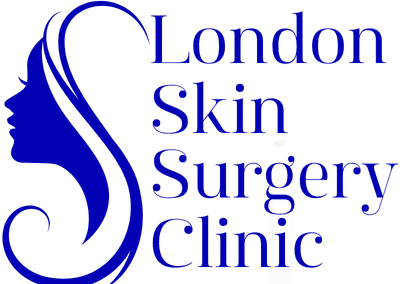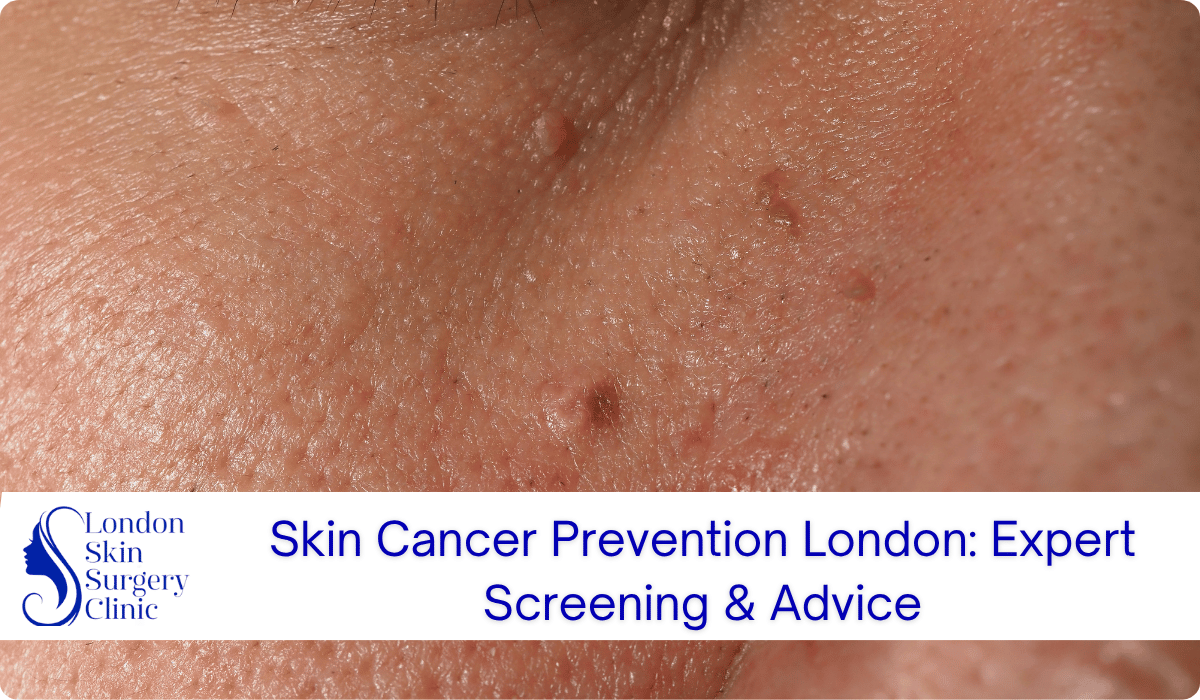Skin Cancer Prevention Essentials for Londoners
- Understand your skin cancer risk factors, including sun exposure, skin type, and family history
- Perform monthly skin self-exams to identify any new, changing, or unusual spots
- Schedule regular professional skin cancer screenings based on your individual risk factors
- Choose a broad-spectrum, SPF 30+ sunscreen and apply it consistently when outdoors
- Protect your skin with clothing, wide-brimmed hats, and seeking shade during peak sun hours
- Monitor your moles for the ABCDE signs of melanoma and promptly get concerning spots checked
- Prioritise early skin cancer detection through self-exams, professional skin checks, and prompt evaluation
- Utilise London’s skin cancer prevention resources and support services for education and assistance
Table of Contents
- Understanding Skin Cancer Risk Factors in London
- How to Perform a Skin Self-Examination at Home
- When to Schedule Professional Skin Cancer Screening
- Choosing the Right Sunscreen for Optimal UV Protection
- Sun Safety Tips for Londoners: Clothing, Hats & Shade
- Mole Monitoring: What to Look for & When to Get Checked
- The Importance of Early Skin Cancer Detection in London
- Skin Cancer Prevention Resources & Support in London
Understanding Skin Cancer Risk Factors in London
While London may not be known for its sunny weather, residents are still at risk for developing skin cancer. Factors such as intermittent sun exposure, use of tanning beds, and having fair skin can increase the likelihood of skin cancer. Those with a family history of melanoma or a large number of moles should be especially vigilant about skin protection and monitoring. Other risk factors include a history of sunburns, a weakened immune system, and exposure to certain chemicals or radiation. By understanding these risk factors, Londoners can take proactive steps to protect their skin and reduce their chances of skin cancer.
How to Perform a Skin Self-Examination at Home
One of the most important ways to catch skin cancer early is by regularly performing skin self-examinations. This involves thoroughly checking your skin from head to toe, looking for any new, changing, or unusual spots. When examining your skin, be sure to use a well-lit room and a full-length mirror. Don’t forget to check less visible areas like your scalp, behind your ears, under your arms, and between your toes. If you notice any moles or spots that are asymmetrical, have an irregular border, vary in colour, are larger than 6mm in diameter, or are evolving in size or appearance, it’s important to have them evaluated by a dermatologist. By making skin self-exams a regular habit, you can become familiar with your skin and more likely to notice any suspicious changes.
When to Schedule Professional Skin Cancer Screening
In addition to monthly self-exams, it’s important to have your skin evaluated by a professional dermatologist on a regular basis. The frequency of these skin cancer screenings depends on individual risk factors. For those with no personal or family history of skin cancer and no concerning moles, a yearly skin check may be sufficient. However, individuals with a history of skin cancer, many moles, or other risk factors may need more frequent screenings every 3-6 months. If you notice any concerning spots or changes in your skin, it’s best to schedule an appointment right away rather than waiting for your next planned screening. Professional skin checks are an important complement to self-exams in the early detection and prevention of skin cancer.
Choosing the Right Sunscreen for Optimal UV Protection
Using sunscreen is one of the most effective ways to protect your skin from harmful UV rays that can cause skin cancer. When selecting a sunscreen, look for one that offers broad-spectrum protection against both UVA and UVB rays, has an SPF of at least 30, and is water-resistant. Consider your skin type and activities when choosing a formula – those with oily skin may prefer a lightweight or gel formula, while those spending extended time outdoors may opt for a sport or high-performance sunscreen. Remember to apply sunscreen liberally to all exposed skin at least 15 minutes before going outside and reapply every 2 hours or after swimming or sweating. By choosing the right sunscreen and using it consistently, you can significantly reduce your risk of skin cancer and premature aging.
Sun Safety Tips for Londoners: Clothing, Hats & Shade
In addition to wearing sunscreen, there are other sun safety measures Londoners can take to protect their skin. Wearing protective clothing such as long-sleeved shirts, trousers, and UV-blocking fabrics can provide an effective barrier against the sun’s rays. Wide-brimmed hats that shade the face, ears, and neck are also recommended, especially during midday hours when the sun is strongest. Seeking shade under trees, umbrellas, or structures can help limit direct sun exposure. When possible, plan outdoor activities for early morning or late afternoon when the sun’s rays are less intense. By combining these sun safety strategies with regular sunscreen use, Londoners can enjoy the outdoors while minimising their skin cancer risk.
Mole Monitoring: What to Look for & When to Get Checked
Monitoring your moles is a crucial part of early skin cancer detection. While most moles are harmless, some can develop into melanoma, the deadliest form of skin cancer. When examining your moles, look for the ABCDE signs of melanoma: Asymmetry (one half doesn’t match the other), Border irregularity, Colour variation (multiple shades of brown, black, or other colours), Diameter larger than 6mm, and Evolution (changes in size, shape, or colour). If you notice any of these warning signs or have a mole that looks different from the others, itches, or bleeds, schedule an appointment with a dermatologist for a professional evaluation. Catching melanoma early significantly improves treatment outcomes, so don’t hesitate to get concerning moles checked.
The Importance of Early Skin Cancer Detection in London
Early detection is key to successfully treating skin cancer and preventing its spread. When caught in its earliest stages, skin cancer is highly treatable and often curable. Regular skin self-exams and professional screenings can help identify skin cancers when they are most easily treated. In London, where cloudy weather can give a false sense of security, it’s especially important to stay vigilant about skin checks. Delaying skin cancer diagnosis can allow the cancer to grow deeper into the skin and potentially spread to other parts of the body, making treatment more difficult. By prioritising early detection through self-exams, professional skin checks, and prompt evaluation of any concerning spots, Londoners can significantly improve their skin cancer outcomes.
Skin Cancer Prevention Resources & Support in London
London offers a range of resources and support for those looking to prevent skin cancer or who have been diagnosed with the condition. The Skin Surgery Clinic London provides comprehensive skin cancer screening, mole monitoring, and treatment services by experienced dermatologists. The British Association of Dermatologists offers a wealth of information on skin cancer prevention, early detection, and sun safety on their website. The British Skin Foundation also provides educational resources and funds skin cancer research. For those affected by skin cancer, Macmillan Cancer Support offers practical and emotional support services. By utilising these resources and support networks, Londoners can become informed and empowered in their skin cancer prevention and treatment journeys.
Frequently Asked Questions
What are the early signs of skin cancer?
The most common early signs of skin cancer include:
- New or changing moles, freckles, or spots on the skin
- Asymmetrical moles with irregular borders and varied colours
- Moles larger than 6mm in diameter
- Sores that don’t heal or frequently bleed
- Rough, scaly patches that may itch or burn
If you notice any of these warning signs, schedule an appointment with a dermatologist for a professional skin evaluation.
How often should I have my skin checked for skin cancer?
The frequency of professional skin cancer screenings depends on your individual risk factors. For those with no personal or family history of skin cancer and no concerning moles, a yearly skin check is generally recommended. However, if you have a history of skin cancer, many moles, fair skin, or other risk factors, your dermatologist may recommend more frequent screenings every 3-6 months.
Is it possible to get skin cancer even if I don’t sunbathe?
Yes, it is possible to develop skin cancer even if you don’t actively sunbathe. While excessive sun exposure increases skin cancer risk, other factors such as genetics, having fair skin, and a history of sunburns can also contribute to the development of skin cancer. It’s important for everyone, regardless of their sun habits, to protect their skin with sunscreen, protective clothing, and regular skin checks.
Can skin cancer be cured if caught early?
When skin cancer is detected and treated in its earliest stages, it is highly curable. The five-year survival rate for melanoma, the most serious type of skin cancer, is 99% when caught before it spreads to the lymph nodes. Early-stage basal cell and squamous cell carcinomas, the most common types of skin cancer, also have high cure rates with proper treatment. That’s why regular skin self-exams and professional screenings are so important for catching skin cancer early.
What SPF should I look for in a sunscreen?
When choosing a sunscreen, look for one that offers broad-spectrum protection against both UVA and UVB rays and has a Sun Protection Factor (SPF) of at least 30. SPF 30 sunscreens filter out about 97% of UVB rays, while higher SPFs offer slightly more protection. However, no sunscreen can block 100% of UV rays, so it’s still important to use other sun safety measures like protective clothing and seeking shade.
Are there any specific resources in London for skin cancer prevention and support?
Yes, London offers several resources for skin cancer prevention and support:
- The Skin Surgery Clinic London provides comprehensive skin cancer screening, mole monitoring, and treatment services.
- The British Association of Dermatologists and British Skin Foundation offer educational resources on skin cancer prevention and sun safety.
- Macmillan Cancer Support provides practical and emotional support for those affected by skin cancer.
By utilising these resources, Londoners can access the information and support they need for skin cancer prevention and treatment.


